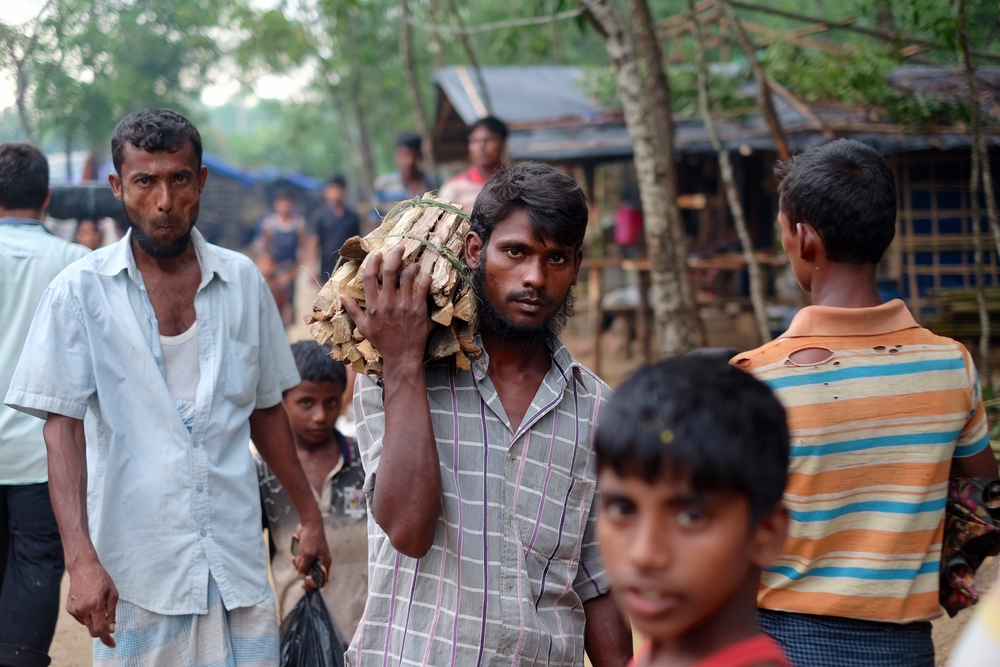
COX’S BAZAR, Bangladesh — Thousands of Rohingya Muslims on Sunday gathered at a camp in Bangladesh to welcome a U.N. Security Council team that’s getting a firsthand look at the plight of refugees who have fled military-led violence in Myanmar.
The refugees at the Kutupalong camp carried placards, some of which read “We want justice.”
Some 700,000 refugees are seeking U.N. protection to return home.
The U.N. team plans to meet some of them, including victims of rape and torture, before continuing to Myanmar after concluding its three-day visit on Monday.
Representatives from the five permanent Security Council members — China, France, Russia, the United Kingdom and the United States — and 10 non-permanent member states have joined the delegation in the coastal town of Cox’s Bazar, where the camps are located.
The recent spasm of violence in Myanmar began when Rohingya insurgents staged a series of attacks on Aug. 25 on about 30 security outposts and other targets. In a subsequent crackdown described by U.N. s and U.S. officials as “ethnic cleansing,” Myanmar security forces have been accused of rape, killing, torture and the burning of Rohingya homes. Thousands are believed to have been killed.
Desperate Rohingya refugees have been rejecting Myanmar’s proposed ID cards, called the national verification cards, saying they want citizenship — something they’ve been denied by the government in the Buddhist majority nation.
Myanmar authorities consider Rohingya to be Bengali immigrants from Bangladesh, and are even refraining from using the word “Rohingya,” even though the protesting refugees said Sunday they belong to Myanmar where they have been living for centuries.
“We are not Bengali, we are Rohingya. They have killed me family members, they tortured us, they will kill us again,” Mohammed Tayab said, standing in front of a tent where he was expecting to meet the U.N. team. He said he was shot by Myanmar troops in his right leg and was using a crutch.
“I am here to talk to them, we want justice from them,” he said. Tayab, 29, said he lost one brother, an uncle and a nephew after Myanmar soldiers shot them dead.
“I will tell them my stories. They should listen to us” he told The Associated Press.
The U.N. refugee agency and Bangladesh recently finalized a memorandum of understanding that said the repatriation process must be “safe, voluntary and dignified … in line with international standards.”